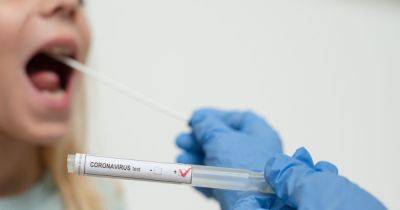NHS urges every person in UK to take daily supplement from October
The NHS is advising all Brits to take a dietary supplement every day for six months starting in October.
According to health experts, over the gloomier autumn and winter months, Brits do not get enough Vitamin D, which is crucial for maintaining healthy bones, teeth, and muscles.
In the brighter months of spring and summer, we generally get enough of the vitamin thanks to sunlight exposure. When direct sunlight hits the skin, the nutrient is produced by our bodies naturally.
READ MORE: Peanut allergy sufferers told 'avoid these foods' amid contamination scare
However, when the days get shorter and the sunlight dwindles, our body's natural production of vitamin D is no longer sufficient. This is why the NHS recommends that everyone in the UK, including children, should take a vitamin D supplement from October through to March.
According to the NHS website: "Vitamin D helps regulate the amount of calcium and phosphate in the body. These nutrients are needed to keep bones, teeth and muscles healthy. A lack of vitamin D can lead to bone deformities such as rickets in children, and bone pain caused by a condition called osteomalacia in adults. Government advice is that everyone should consider taking a daily vitamin D supplement during the autumn and winter."
For adults, pregnant and breastfeeding women, and children over one year old, the NHS advises a daily intake of 10 micrograms of vitamin D. Babies under one year should receive between 8.5 to 10 micrograms per day.
Vitamin D can be found in certain foods such as oily fish, including salmon, sardines, herring and mackerel, red meat, liver and egg yolks. However the NHS recommends taking a supplement as it can be hard to reach the required levels through diet alone.








